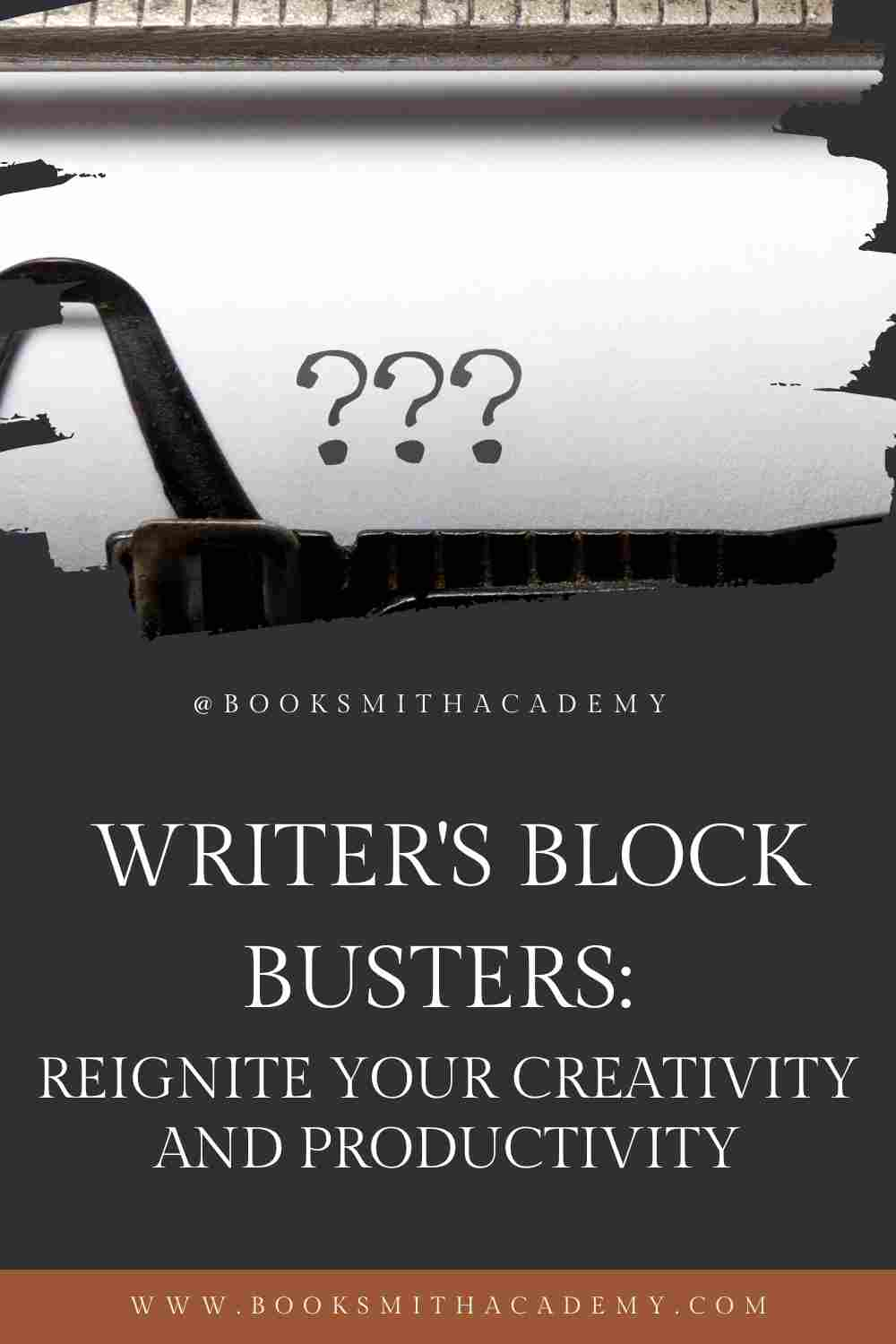
Writer’s block is something that impacts all writers at some point, but is there really such a thing?
Many famous writers have written about the concept of writer’s block, usually implying that you just have to push through, like Lev Grossman:
“When you’re stuck, write something terrible and fix it later.”
If you are a writer, chances are you have sat down at some point to keep writing your current project and found yourself staring at the wall unable to make anything appear on the screen/page. It is a crippling feeling. You often feel as though all inspiration and creativity has been drained from your body and as though you are empty and have nothing left to give. It is one of the biggest challenges writers face.
But does writer’s block really exist?
Well, the quick answer is no, although there are several other things which can feel a lot like this famous inability to write, so let’s take a look at those.
Writer’s block can be a result of:
- Lack of inspiration – often when your words dry up it is as a result of inspiration leaving you.
- Overstimulation – just as lack of inspiration can be paralysing, so can having too many ideas and thoughts.
- Loss of direction – if you aren’t sure where your writing is going next this can cause the words to leave you.
- Feeling preoccupied or distracted – most writers work from home and often this temporary block can be caused by knowing that there are other things you should be doing.
- Fear/self doubt/perfectionism – this is perhaps the most common cause of writer’s block. Writers are emotional, often vulnerable creatures and that fear that you will put all this work in and then someone will criticise you for it, and undo all that hard work can be crippling.
What can you do to banish writer’s block?
LACK OF INSPIRATION
If you believe your block is caused by lack of inspiration, the solution is simple – walk away. Go do some housework, take the dog for a walk, dance in the kitchen, go visit somewhere that might give you some ideas, do not sit and stare at the lack of words. Get moving and see how easily the words flow when you have had a break.
OVERSTIMULATION
Write it all down. If you have too many thoughts and ideas, get it all out onto paper and give your brain chance to breathe knowing that all that information is safely stored away.
LOSS OF DIRECTION
If you are a planner this probably won’t be an issue for you, but if you are a pantser (this is a term used for writers who work without a plan), you may find this is a likely cause for your blocks. Perhaps consider creating just a very brief plan for what will be in each chapter?

DISTRACTED
Now that most of us write on computers it is so much easier to be distracted while writing. An email pings in or we just go to research something and we end up falling into a research rabbit hole. The only way to combat this is discipline. Reward yourself with ten minutes scrolling for every hour you write. There are apps that will allow you to block social media at certain times if this is becoming a real issue for you.
PREOCCUPIED
This one is a challenge. If it is a job you need to get done, then just go do it and then come back to your writing. If it is a person or situation that is distracting you, perhaps they are ill or you have had a fall out, then either contact them and set your mind at ease, smooth the situation over, or write it out. Grab your journal and empty your head of as much of the worry as you can and then sit back down to write. There may be times though that this kind of distraction is just too great and you have to accept that you won’t be writing today.
Whatever the cause of writer’s block and whatever label you give it, there is no doubt that some days it is harder to write than others. Pinpointing the cause of this issue will help you to work out how to tackle it though and hopefully enable you to get back to your current project as quickly as possible.
“There’s no such thing as writer’s block. As long as your fingers can move over the keyboard, eventually it’ll segue into something.”
Mary Kay Andrews
For more writing tips and wellbeing for writers advice, check out our other blogs and sign up to our bi-monthly Booksmith Academy newsletter.
If writing more is one of your goals for this year, join us in our new membership for writers and booklovers, InkWell Scribes, where we’ll be sharing our love of all things nonfiction and writer wellbeing in a like-minded and passionate community.

